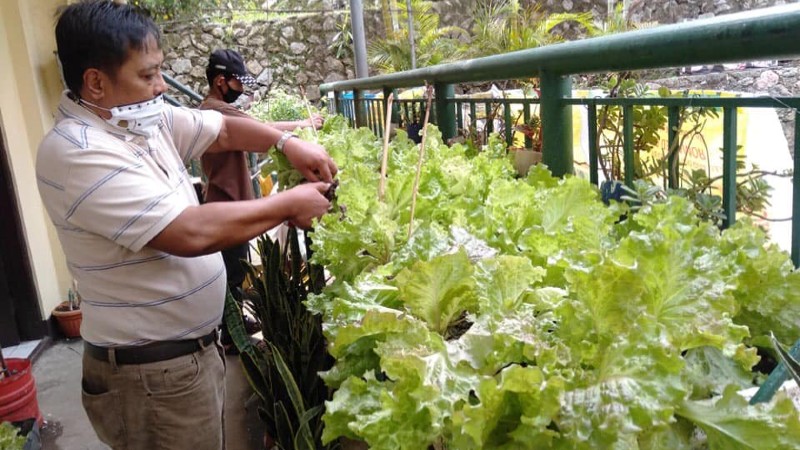BAUKO, Mountain Province – Food insecurity is one of the global problems the world is facing, encouraging communities to innovate ways to address. In the local context, Cordillerans have been known for food sustainability in terms of food production and supply.
The “Esek ya Kataguan (Means of Life)” is a food sustainability program practiced in Leseb, Bauko, Mountain Province which started in 2013 to ensure food security in every household in the community.
This locally-initiated program is also known to intensify garden vegetables and other agronomic crops which are home-grown right at the backyard of each household.
Armed with community participation, Esek ya Kataguan aimed to stabilize food and vegetable supply, address food insecurity within the community, and promote organic farming practices.
Further, it also ensures food sufficiency for each household, especially in times of calamity when people cannot go out to procure food.
“The program, though individually initiated in the past, was pioneered due to the disaster experiences of people in Leseb in particular, and Bauko in general,” shared Leseb Barangay Captain David Cammas.
Some of the agricultural commodities being produced in Leseb are beans, onion and leeks, tomatoes, eggplants, pechay, squash, spinach, celery, radish, ginger, spinach, okra, among others that can grow in the backyard for community and household use.
Rosalinda Tugmoy, barangay health worker, stated that the program could also help people save money because there is no need to buy everything since they have something to harvest in their backyard.
Tugmoy added that the plant-your-own-food program ensures good health for every family because vegetables are nutritious and everyone needs them, thus, must be maintained in the community.
She reiterated what World Health Organization (WHO) states, “A healthy diet is composed of regular fruits and vegetables intake as part of a healthy lifestyle which is the foundation of good health.”
Additionally, Tugmoy underscored that backyard gardening is eco-friendly and promotes organic farming.
“It is considered organic farming because the composted biodegradable waste from the eco-composting receptacle (ECR) that each household has will be used to fertilize vegetables, so there is no need for excessive chemical inputs,” explained Tugmoy.
As for the individual who does not have enough space in their backyard, Tugmoy said, the household can produce vegetables in any container, like used plastics, cans, and reused pots as long as vegetables are free to grow.
The barangay council, together with the barangay health workers, encouraged all Leseb stakeholders to participate in the program to self-sustain food production.
By Hylinn B. Pawid













